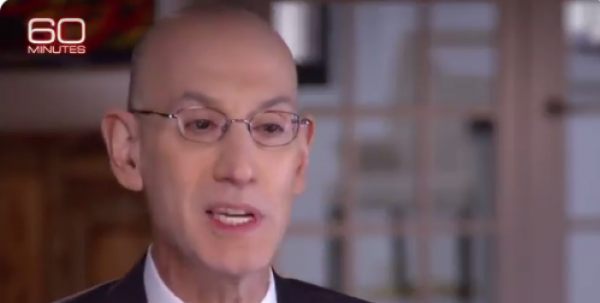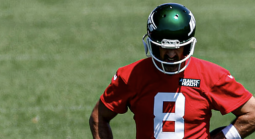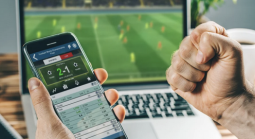60 Minutes Explores Legallized Sports Betting in the US and Potential for College Athletes to be Compromised
- University officials fearful that legalized sports betting could lead to the compromise of athletes
- Nobody can sit here and tell you they can deal with this and be a hundred percent clean, Marshall University's Mike Hamrick asserts
- Some on Twitter say athletes are already exploited by the schools
- Athletes getting paid to fix games has happened already

WHY BE AN AFFILIATE WHEN YOU CAN GET 100%? JUST PAY $5 PER PLAYER
The CBS television news magazine aired a segment on legalized sports betting in the United States and how college athletes in particular may be prone to providing injury information and game fixing for the right price.
In May of last year, the United State Supreme Court threw out decades of prohibition of sports wagering. Since that time a handful of states have legalized it with another two dozen expected to do so in the next two years. With gambling on sports in the U.S. now legal, the activity is growing more widely accepted in mainstream society.
Marshall University's Mike Hamrick thinks that with legalized gambling offering so many different ways to wager on a game, including more and more bets placed during games, it may be easier to convince an unpaid athlete to influence a game. "It's very tempting. It's very tempting," he says. "They can be compromised. And-- our job is to make sure they're not compromised."
"It's gambling," Hamrick said dismissively. "It can be handled to a certain extent. But nobody can sit here and tell you they can deal with this and be a hundred percent clean. They can't. They can't," he repeated.
Hamrick even mentioned a situation where he and his wife were at a game where the team was up by significant points and the crowd booed at the end after one of the players opted not to take a final shot. His wife leaned over to him and expressed disappointment that the fans felt compelled to, not just win, but run up the score. Someone overheard the conversation and advised her the crowd reaction was the result of a failed cover when that player decided not to take the final shot.
Those on Twitter reacted, some suggesting the real root of the problem is exploitation of athletes as opposed to their potential to be compromised.
Bean tweeted:
So let the players get paid through their own personal likeness. Quit handcuffing them.
Tee J tweeted out:
This AD is more concerned that the university will lose money if student athletes, consistently exploited by colleges, lose their games. #PayStudentAthletes #stoppimpingstudentathletes @NAACP
On the MadJackSports.com forum, one poster writes:
The Marshall AD in 60 minutes interview Paranoid
It turns out Hamrick's fears are well founded.
Longtime Las Vegas oddsmaker Kenny White and one time vice president of data integrity at Don Best Sports began receiving complaints from his clients during the 2004 through 2006 seasons of how they were consistently getting destroyed on Mid-American Conference football and basketball game wagers.
After dedicating resources to develop more competitive lines, clients continued noticing the same issue. White ultimately unearthed what appeared to be suspicious activity at the University of Toledo.
He was right.
Seven former Toledo football and basketball players were tried, convicted and received varying sentences of probation and fines.
The 20-count indictment charges that between December 2004 and December 2006, Ghazi "Gary" Manni, 52, and Mitchell Karam, 76, paid money and other things of value to the athletes in order to influence, or attempt to influence, the final score of both football and basketball games.
“Amateur athletes are at the highest risk because there are no paychecks. They don't make any money,” White said. “They get a stipend a month and a gambler throws down $10,000 in front of them and says, ‘Fix one game — you don't even need to lose. Just don't cover the point spread.’ There's a pretty good chance (they do it).”
Jake Williams, general legal counsel for the U.S. branch of Sportradar, a European sports data and integrity company, told CNHI last year less than 1 percent of the 400,000 matches the company covers are deemed to have suspicious betting or likely to be fixed. Still, he acknowledged how susceptible college athletes are.
Williams agrees with Hamrick that schools need to beef up corruption and integrity units in the wake of sports betting legalization.
"To ignore and not educate those types of athletes is going to be problematic in the long run,” Williams said. “I hope the conferences, the schools and the NCAA understand the scope and breadth of what's required and actively participate in making sure they're doing everything they can to protect their athletes.”
- Gilbert Horowitz, Gambling911.com














